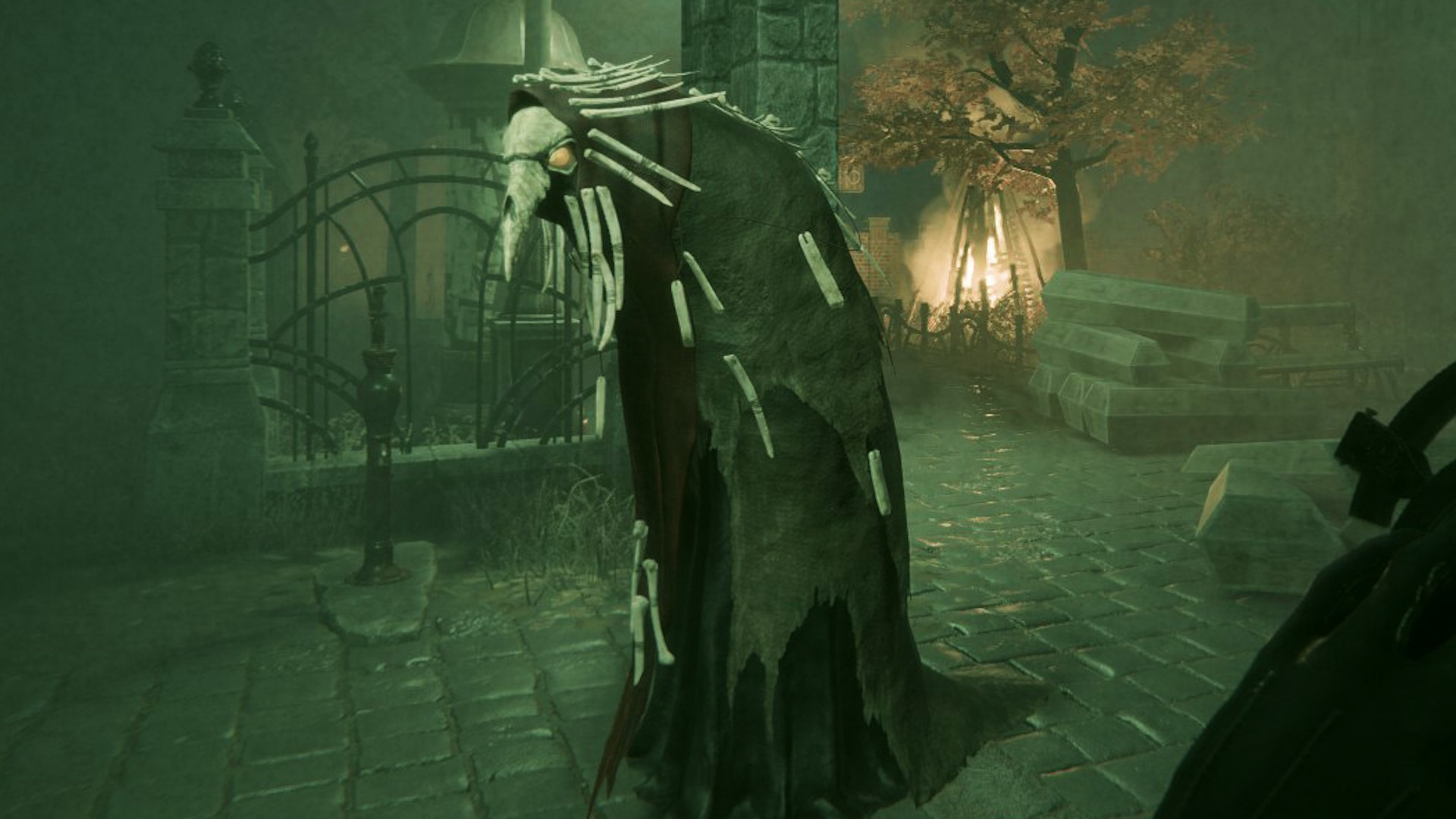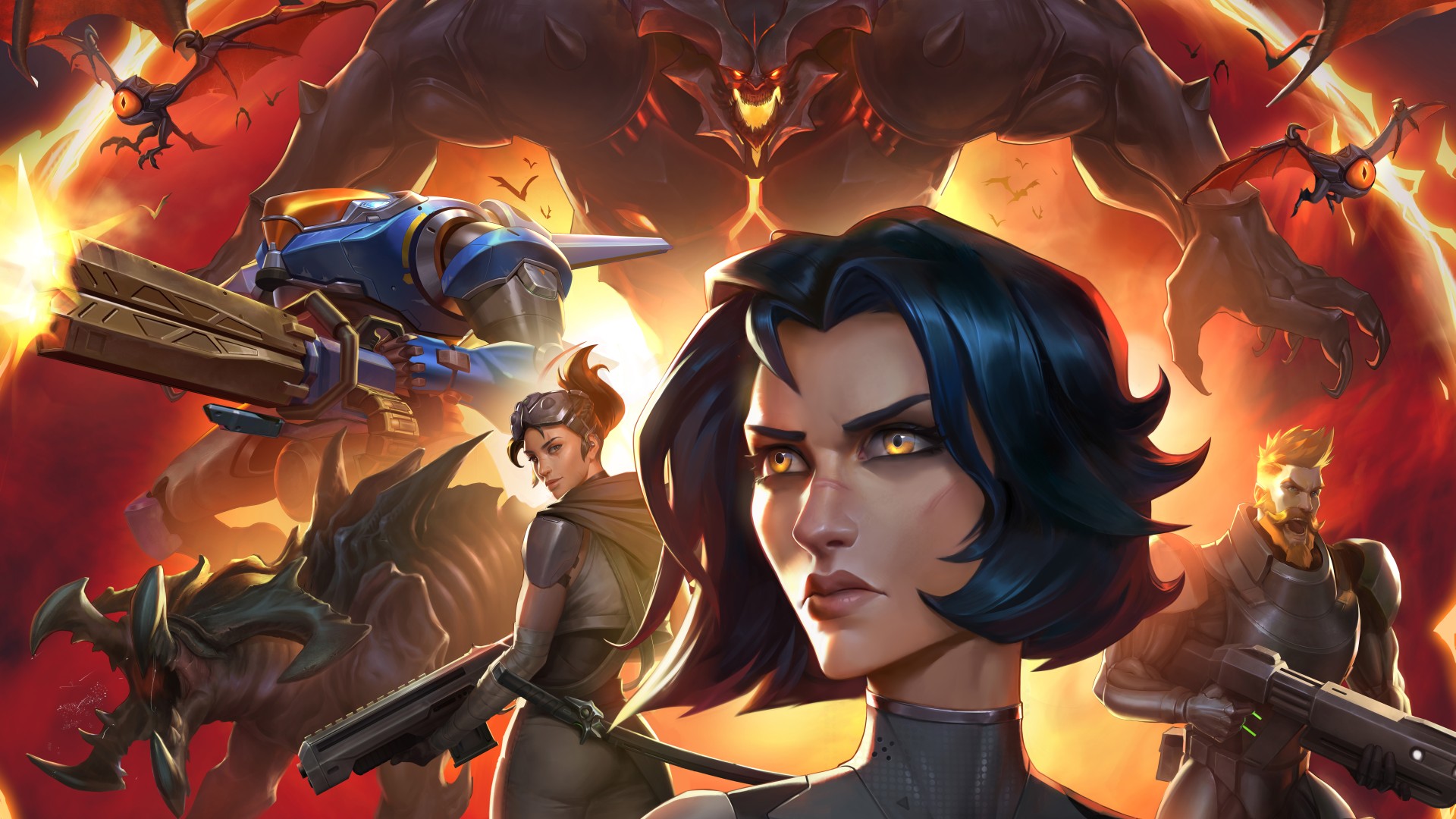
I have deleted my save file in Time Bandit and started a new game three times now. I keep messing up and missing a very, very important appointment with a strange figure in scuba gear who wants to meet in secret. Fourth time’s the charm – I wake up early and make my appointment. Finally, I can get back to work.
Developer Joel Jordon pitched me on covering Time Bandit for this column months ago, based on my known love for a similarly real-time game, The Longing. Time Bandit exists within the same very small genre of games that take place in real-time, but which also are not endless in the way that Animal Crossing or certain mobile games are – it’s a story that plays out, minute-by-minute, as you go. You play as a worker in a factory tasked with mining mysterious objects called Time Crystals, most of which are hidden throughout the facility behind minecarts, rubble, and other obstacles. Your job is to use your trusty forklift and other tools to remove the obstacles one by one and collect them for the company. Simple, yes?
But it’s not. First off, the forklift (and all other tools) take both energy and time to use. Energy can only be replenished by returning to your apartment and sleeping for hours, which is convenient because your tools need minutes, even hours to finish moving a single obstacle at a time. Tools are also powered by fuel, which you have to pay for out of pocket using wages you earn once per real-time day. All this means that Time Bandit is largely a game where you open it up, collect your wages, buy fuel, set your forklift and other tools to start their respective tasks, and then go back to sleep and shut the game off while you wait.
I feel like there’s some sort of radical potential contained in Animal Crossing.
Describing Time Bandit is like describing a farm sim full of chores, in that it sounds deeply tedious but in reality is compelling. Some of that I can chalk up to its haunting, Metal Gear-inspired, PS1-era aesthetic luring me in with striking shots like the one of the city center clock tower. But most of my fascination stemmed from the game’s narrative context. Early on, the aforementioned scuba fellow accosted me outside the factory and asked me for a secret meeting at a time of my choosing the next day. I was urged, repeatedly, not to miss it. I never found out what happened if I did – I was too worried about upsetting him, so I restarted the game all three times I missed it. When I did eventually make the meeting, I was told about the factory’s true motivations, and the real power of the Time Crystals I was mining for them. Armed with new knowledge, I now had a choice as to what I did with those crystals, a mission centered around the value of time and labor, and the ability to commit, yes, literal time theft from the game’s 1%.
Speaking with Jordon over coffee at GDC, I immediately see how they ended up making a game about fairly heavy, anti-capitalist themes and weird time shenanigans. They previously designed an interactive theater piece called Boss Battle, a game where one group of workers has the option to negotiate with a single player, a boss, over the rules of how the rest of the game is played. Jordon recalls that when it debuted at Come Out and Play in 2017, the group of workers went on strike.
Time Bandit, though, is Jordon’s first major video game. It’s finally headed to Steam on July 24 after nearly a decade in development. Jordon first started work on Time Bandit in 2014, inspired at the time by Animal Crossing: New Leaf on the Nintendo DS and the ways in which it turned gaming into an appointment of sorts. They tell me that at the time, they were playing New Leaf every day for 10 to 15 minutes, but were only checking in to talk to villagers, water flowers, and listen to the music. They hadn’t progressed by building their house or engaged with the other, more video-gamey aspects hardly at all.
“I feel like there’s some sort of radical potential contained in Animal Crossing, the way that it gives you all of the game stuff, traditional game loops and things like that,” Jordon says. “But it offers other points of interest so that you can totally ignore those, and instead just do whatever you want to do with the game. I think it’s tied to the real-time aspects of the game, the way that it’s like a space that you live in. So then I was thinking, what if I made a game that was more of a story-driven, goal-driven adventure game that drew on those real time events, and…would deal exclusively with time as a theme?”
At the same time, in 2014, free-to-play mobile games were also taking off, and similarly fussing with the idea of people being able to play them in real time, over time. Jordon similarly was inspired by this. They suggest that free-to-play games fragment their in-game economies into “Haves” and “Have-Nots” based on who can and is willing to pay to advance. Time Bandit, meanwhile, is a game where your only option is to play as a Have-Not who has to work to survive.
Time Bandit’s story goes places fairly quickly (or slowly, depending on your perception of time), but it’s very quickly apparent as an anti-capitalist dark comedy of sorts. It also incorporates some pretty hefty consequences for making mistakes: if you don’t return to your apartment to rest and either quit out of the game directly or run out of energy while working, you get sent to jail, which costs time and money to get out of. If you move a box in the wrong direction (as I did very, very early on), you have to spend time, money (on fuel), and energy moving it back into the right spot before moving forward. Eventually, you’re given a work schedule too that only allows you to enter the factory at certain hours a day…unless you’re willing to risk some consequences. Everything is slow and methodical, grows only more so over time, and forces you to be certain about the commitments you’re making every time you play.
Which is deliberate on Jordon’s part, they say. That early meeting that I missed three times before I finally managed to show up? Jordon says it’s a bit of a test for players to decide whether or not they’re actually committed to playing a game like Time Bandit.
“I want to ask the player, ‘Are you ready to commit to this experience?’ If not, you can quit now. If you commit to it, then the game isn’t as demanding as it might at first appear. And I don’t want it to be. I want it to be really open to how players want to experience it.”
I want to ask the player, ‘Are you ready to commit to this experience?’ If not, you can quit now.
They add that players who have already tried and enjoyed Time Bandit often give the feedback that it’s not dissimilar to real-time mobile games, in that checking in can be rather addictive. Jordon wants to be careful with this categorization – Time Bandit doesn’t include microtransactions, after all – but they do suggest that the game was always designed to explore this topic, too.
“It’s a game that’s about these addictive loops,” they say. “And I want it to have them to an extent, and then also critique them and make people think about them, and think about how they want to actually spend their time…Sometimes at a certain point in the game [you’ll be] waiting days or weeks, maybe, for things to happen. I think that’s an interesting way, potentially, of taking those loops and making people experience time in a different way, after they’ve grown used to experiencing it in one way.”
I’m still slowly muddling my way through to the “end” of Time Bandit, but Jordon tells me that won’t actually be the end. Time Bandit is intended to be episodic, with a multi-part story, varying levels of time pressure “intensity,” and different real-time mechanics in each section. What’s coming out on July 24 is just the first part of four, though Jordon reassures that future parts will likely not take another nine years to develop, now that Time Bandit’s base systems are in place.
In that regard, at least, it’s thematically appropriate that we’ll have to let real, real time pass to see Time Bandit’s story through to its conclusion. I can’t wait. Or, rather, I can and I must.
“The context this story provides is to get players to think about how time is…shaped by social and historical forces and systems that we live under,” Jordon says. “It’s about getting people to think beyond just practicing things like meditation and mindfulness to change their subjective experience of time. What would it really take to develop an alternative experience of time?”
Rebekah Valentine is a senior reporter for IGN. You can find her on Twitter @duckvalentine.






